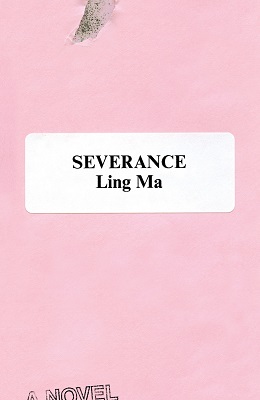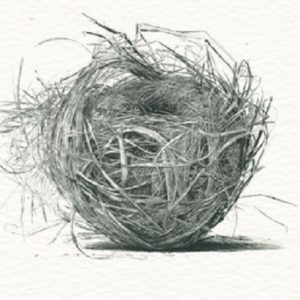
Prologue
After the End came the Beginning. And in the Beginning, there were eight of us, then nine—that was me—a number that would only decrease. We found one another after fleeing New York for the safer pastures of the countryside. We’d seen it done in the movies, though no one could say which one exactly. A lot of things didn’t play out as they had been depicted on-screen.
We were brand strategists and property lawyers and human resources specialists and personal finance consultants. We didn’t know how to do anything so we Googled everything. We Googled how to survive in wild, which yielded images of poison ivy, venomous insects, and bear tracks. That was okay but we wanted to know how to go on the offensive. Against everything. We Googled how to build fire and watched YouTube videos of fires being lit with flint against steel, with flint against flint, with magnifying glass and sun. We couldn’t find the requisite flint, didn’t know how to identify it even, and before we tried using Bob’s bifocals, someone found a Bic in a jean jacket. The fire brought us through the night and delivered us into a morning that took us to a deserted Walmart. We stockpiled bottled water and exfoliating body wash and iPods and beers and tinted moisturizer in our stolen Jeeps. In the back of the store we found guns and ammo, camo outfits, scopes and grips. We Googled how to shoot gun, and when we tried, we were spooked by the recoil, by the salty smell and smoke, by the liturgical drama of the whole thing in the woods. But actually we loved to shoot them, the guns. We liked to shoot them wrong even, with a loose hand, the pitch forward and the pitch back. Under our judicious trigger fingers, beer bottles died, Vogue magazines died, Chia Pets died, oak saplings died, squirrels died, elk died. We feasted.
Google would not last long. Neither would the internet. Or any of the infrastructure, but in the beginning of the Beginning let us brag, if only to ourselves in the absence of others. Because who was there to envy us, to be proud of us? Our Googlings darkened, turned inward. We Googled maslow’s pyramid to see how many of the need levels we could already fulfill. The first two. We Googled 2011 fever survivors, hoping to find others like us, and when all we found were the same outdated, inconclusive news articles, we Googled 7 stages grief to track our emotional progress. We were at Anger, the slower among us lagging behind at Denial. We Googled is there a god, clicked I’m Feeling Lucky, and were directed to a suicide hotline site. In the twelve rings it took for us to hang up, we held our breaths for someone else, some stranger’s voice confirming that we weren’t the only ones living, despite Bob’s adamant assertions. There was no answer.
From this and other observations, it was deduced that we were alone, truly alone.
“We didn’t know how to do anything so we Googled everything. We Googled how to survive in wild, which yielded images of poison ivy, venomous insects, and bear tracks. That was okay but we wanted to know how to go on the offensive.”
After weeks of running amok, of running aground, we rallied and organized a game plan. Our self-appointed leader was Bob, a short, stout man who had worked in information technology. He was slightly older than us, though by how much it seemed rude to ask. He was Goth when he felt like it. He knew about being alone. He had played every iteration of Warcraft with a near-religious fervor; it was as if he had prepared for this, this thing, this higher calling. He held his right arm in a sling close to his chest, tucked inside his shirt, after a botched carpal tunnel surgery. Partly enfeebled, he was especially adept at directing others to his will. Things needed to be taken care of, we needed to be told what to do. We received his clear, concise instructions like manna.
I have a place for us to stay, Bob said, puffing on his e-cigarette. The scent of French vanilla wafted through the night air.
We sat around the bonfire, listening. It was this gigantic two-story complex in Chicago that he and some high school buddies had bought.
For what? Janelle asked, blasé. Just in case the apocalypse happened?
For when the apocalypse happened, Bob corrected. We always knew it would, though I personally didn’t know it would be this early.
We waited as Bob took another drag on his e-cigarette before continuing. The Facility, he informed us, had everything. It had big, high ceilings. The roof had skylights cut into it, so it got plenty of light. There was a movie theater. Maybe the projector would still work. Everyone would have an individual room.
We considered Chicago. The even-keeled, prairie center of the Great Lakes region, its long, hardy winters rife with opportunities for canning root vegetables and stone fruits, the midwestern sensibilities embodied in the large, beneficent scale of its city layout, especially River North and downtown, the larger blocks, the more spacious buildings, and at sunset, the rich, golden light against its stately, modern architecture, structures that had survived fires and floods, so many fires and floods. Such an environment, Bob advised, could only benefit our better natures. We would set up camp in the lake breeze, lay down roots for our new lives, and procreate gently amongst ourselves. We would love the ensuing offspring created by our diverse ethnic offerings. Chicago is the most American of American cities.
It’s actually Needling, Bob said. Needling, Illinois. It’s right outside Chicago.
I am not living in the suburbs, Janelle announced.
Why, do you have a better place in mind? Todd scoffed.
Making plans heartened us, and as we stayed up late, drinking, we theorized grandly. What is the internet but collective memory? Anything that had been done before we could do better. The Heimlich maneuver. Breech births. The foxtrot. Glycerin bombs. Bespoke candle making. Lurking in our limited gene pools may swim metastatic brain tumors and every type of depression and recessed cystic fibrosis, but also high IQs and proficiencies with Romance languages. We could move on from this. We could be better.
“We would set up camp in the lake breeze, lay down roots for our new lives, and procreate gently amongst ourselves. We would love the ensuing offspring created by our diverse ethnic offerings. Chicago is the most American of American cities.”
Anything was better than what we felt. We had shame, so much shame at being the few survivors. Other survivors, if they existed, must also feel this way. We were ashamed of leaving people behind, of taking our comforts where we could find them, of stealing from those who could not defend themselves. We had known ourselves to be cowards and hypocrites, pernicious liars really, and to find this suspicion confirmed was not a relief but a horror. If the End was Nature’s way of punishing us so that we might once again know our place, then yes, we knew it. If it was at all unclear before, it was not now.
The shame bonded us. In the morning, we Googled diy tattoos and boiled a pan of sewing needles. Soused and sorrowed, we inked small lightning bolts on each of our forearms, near the wristbone, to symbolize our bond. Because it was said Crazy Horse divined that he would be successful in war only if he never stopped to gather the spoils of battle, and to remind himself of this, he tattooed lightning bolts behind his horses’ ears. Strike fast, strike first.
The key thing, we reminded ourselves, was never to stop, to always keep going, even when the past called us back to a time and place we still leaned toward, still sang of, in quieter moments. Like the canyons of office buildings all the way down Fifth Avenue. Like all the Japanese and Swiss businessmen leisuring through Bryant Park, sipping hot chocolate. Like the afternoon sun cast through our midtown office windows, when it was almost time to leave for all the pleasures of the eve ning: an easy meal eaten standing up at the kitchen counter, a TV show, a meetup with friends for cocktails.
*
The truth is, I was not there at the Beginning. I was not there for any of the Googlings or the Walmart stalking or the feastings or the spontaneous mass tattooings. I was the last one out of New York, the last one of the group to join. By the time they found me, the infrastructure had already collapsed. The internet had caved into a sinkhole, the electrical grid had shut down, and the road trip toward the Facility was already under way.
It had been the nostalgia-yellow of the Yellow Cab that the group had first spotted, parked along the shoulder of a road in Pennsylvania. NYC TAXI, it read on the car door. It was a Ford Crown Victoria, an older fleet model that cab companies had almost phased out. It looked, Bob later told me, as if I’d driven a broken time machine right out of the eighties. It was my in. Entire highways were clogged with abandoned vehicles, but they had never seen a New York cab out in the middle of nowhere, the meter still running, the fare light on.
I was dehydrated and half-conscious in the backseat. I wouldn’t speak.
The truth is, I had stayed in the city as long as I possibly could. The whole time, I had been half waiting for myself to turn, to become fevered like everyone else. Nothing happened. I waited and waited. I still wait.
__________________________________
From Severance. Used with permission of Farrar, Straus and Giroux. Copyright © 2018 by Ling Ma.


